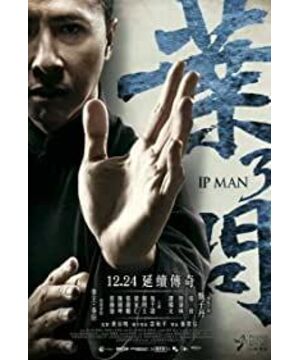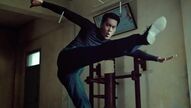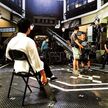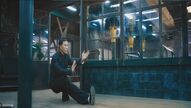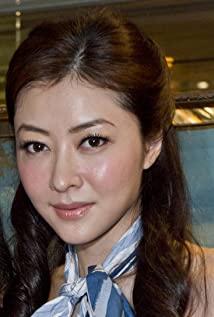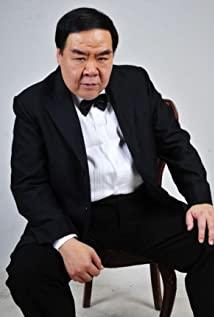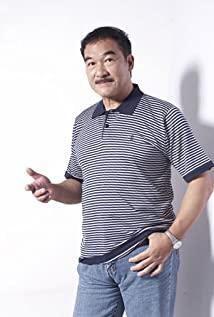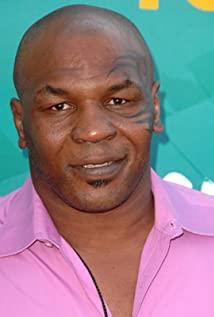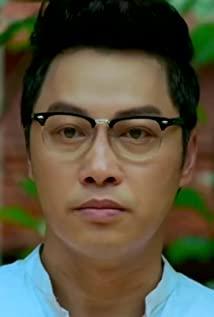Ye Q & A: "It's not that you are afraid of your wife, but that you respect your wife." The
above is the beginning of the first part of "Ip Man" in 2008. Jinshan looked for several times to say something rude, Zhang Yongcheng stared at him and said, "Don't break things at home." After that, he turned and escaped into the back hall. Ye Wen beat the uninvited guest in the front hall with swollen nose and swollen eyes.
That was the 1930s. Time has passed by half a year. In Hong Kong in 1959, Zhang Yongcheng was diagnosed with cancer, and time is running out. Ye Wen, who was devoted to slaying evil and had no time to take care of his family, realized that what he regretted most was not spending more time with his wife. While waiting in the hospital, Ye Wen, who was flipping through the newspaper, read a joke in the newspaper and gave it to Yongcheng to listen
to it. The general idea is as follows: "Someone brags to everyone that he is not afraid of his wife. If anyone is afraid of his wife, he sits on the left. In the end, everyone After sitting down, only the man didn't move. Everyone asked him why he didn't sit there, and he said,'My wife forbids me to go to
crowded places.'" After listening, Yongcheng asked, "Then you are afraid of your wife?" Ye Q&A: "It's a moment (sometimes afraid, sometimes not afraid)."
## The appearance of the lover is
actually in the newspaper with jokes, and there is a headline in it. It is Zhang Tianzhi (played by Zhang Jin) to his fellow students Ip Man's book of war, we have to fight over who is the authentic Wing Chun school. Ye Man saw it and kept silent; Yongcheng saw it too, silently remembering it in his heart.
On the day of the "Wing Chun War", Ye Wen did not challenge, but danced with his wife. He once promised to dance with her, but because he was thinking of martial arts, he even remembered the date that he had said wrong, and only understated it. After his wife was seriously ill, he went to learn temporarily (under Bruce Lee), and then put down the martial arts to accompany his wife to dance, but she failed to finish the last song of her life-fainted on the ground, and was taken to the hospital.
During the hospitalization, Ye Wen has been taking care of his wife meticulously, and the companionship his wife wants is completely satisfied in the last moments of life. But she wrote another letter to Zhang Tianzhi, asking the other party to complete the unfinished competition on behalf of Ye Wen.
This is the knot of eternal success. She dressed up, took pictures with Ye Wen, and returned home together. She asked Ye Wen if she would go to the fight if it wasn't for her illness. Ye Q&A, yes. Yongcheng said, this is the Ye Wen she loves. She is grateful for his company, but she knows that he belongs to everyone and also belongs to the times, and the reason she loves him is precisely because he is Ye Man-if he no longer plays the role of Ye Man, her love will be too. Not here.
Then came the golden ratio composition: Ip Man was standing on a wooden stake playing Wing Chun on the golden section, on the right is the golden sunset brewing on the wall, and then to the right (the camera is out) , Is where Yongcheng sits. Ye Wen, who played Wing Chun, is a great master. Everyone's eyes are focused on him, and she doesn't need to be in the mirror. What she loves is the familiar sound of hearing her lover's pegs. That is the "look of a lover" she loves.
##
Ye Wen defeated Zhang Tianzhi with a stick, a knife, and a fist. The two sons watched the battle secretly, but Yongcheng didn't. She sat outside, just like Ye Wen defeated Jinshan in the first part. But the director gave her a close-up of the worried expression. She cares more about his life and death than Ye Wen in the arena, so she can't bear to see the eyeless sword that may cause harm to her lover, but she still chooses to complete the "Ip Man" .
In "Ip Man 2" released in 2010, the "Big Boss" of the film is Western Boxing King Tornado, representing the Chinese and Chinese martial arts. Instead of fighting in the ring, Yongcheng also guards. Listening to the tape recorder was frightened. After Ye Wen won, Yongcheng smiled with relief, and the screenwriter also let their second cotyledon be born "smoothly" at this moment. In general, Yongcheng basically does not watch the scenes of her husband fighting with others. She shows the image of housekeeping in the three movies.
The defeated Zhang Tianzhi smashed the plaque of "Wing Chun Zhengzong", saying that he was not a shameless defeated person. But Ye Wen turned around and said only one thing, the most important thing was the people around him. What was compared was the fame, fortune and status that men thought about, and the companionship and well-being that women cared more about. Ye Wen, who won the contest, said the above sentence, which implies family happiness and better cohesion with lovers.
The male pursuit represented by Zhang Tianzhi suddenly became "naive". The whole film does not explain his wife, and he and his son also refer to each other as "masters and apprentices" (except for a few moments of life and death such as his son's kidnapping), alluding to the fact that his pursuit of a name has become the whole life.
In a scene in the film, Yongcheng asked and answered: "Do you know why women are made beautiful because they want men to love; why women are made stupid because they want to fall in love with men." This word "stupid" does all of the above. Although it is still a typical "male lead outside, female lead inside" narrative structure, there is no need to be too demanding on such a commercial film. (Advertising time: Recommend Carey Mulligan's Suffragette, and Julianne Moore and Ellen Page's Freeheld)
## " Easter egg" Thaison: Jump out of the big narrative.
However, in the "Ip Man 3" advertisement, the boxing king Thaichen (also translated as Tyson, Mike Tyson) as a solicitation, I believe that many people buy tickets and look forward to seeing the passionate scene of "the strongest in the universe" Donnie Yen vs. Taison. But Taichen, who plays the boss of the underground boxing house, didn't make many appearances, but with his rank, he couldn't be "Kelly Brown (Dragon Set Actor)", so he became the biggest "Easter Egg" in the whole film.
Looking at the three "Ip Man", a nearly two-hour martial arts movie, there are naturally more and more exciting fights, and the layout also has to be layered. The first is ten Japanese empty-handed black belts, then the Japanese general Miura, and the second is Sammo Hung, and then the world boxing champion Tornado, who defeated Sammo Hung and despised Chinese martial arts.
The above two films either defeated the invading Japanese soldiers in Foshan to inspire nationalism, or defeated racially discriminatory foreigners in Hong Kong and made a politically correct statement that "personality is not distinguished from high or low and should be respected." In "Ip Man 3", the "non-my race" is no longer the ultimate boss.
Because it hindered Taichen, the owner of the underground boxing house, to make money, Ye Wen became a thorn in his eye. But Taichen only asked Ye Wen not to fall down within 3 minutes. The subsequent fight was mixed with the breaking of countless glass and the jump and cutting of the upper and lower shots. In the last scene, the two hit each other's key points, and the alarm clock also sounded at the right time. Obviously, the director considered the gimmick of the film and the status of the box office noble Taichen in the Western world. The most politically correct way is for the two to fight, and Taichen also graciously asked Ye Man to leave and keep his promise.
In fact, in the film, Taichen’s wife is a Chinese wearing a cheongsam. Regardless of her appearance, build and temperament, she is not lost to Mrs. Ip Man played by Xiong Dailin. After the boxing, Taichen also warmly picked up his mixed daughter (skin It's actually quite white...). This arrangement has played down the rich narratives of race, ethnicity, and country in the first two films, bringing the movie back to a very personal level. Therefore, it allows Ye Wen to play a role in both family and society. Attribution, there is a dramatic tension.
## Elevator sleepy beast fight The
author personally believes that the most exciting fight in the film is not Taichen, nor the last fight with Zhang Tianzhi, but the sleepy beast fight with the anonymous Thai killer in the hospital elevator.
At that time, Yongcheng had not yet been hospitalized. When Ye Wen took her to see the illness and got on the elevator to leave, the elevator door was "as expected" blocked by a terrible hand, and the Thai killer entered the elevator and pulled it up. At the gate, a vicious fight in a small space is on the verge (Thai boxing and Wing Chun are both martial arts of close combat). A few of the punches were close-ups of Ye Wen fending off the attack for his wife, and then pushed the door to go out and hit again. Before the elevator reached the underground, the Thai was beaten away smoothly. But Ye Wen in the green cloth gown happily opened the gate, picked up the medicine packet that had fallen on the floor of the elevator, took his wife's hand, and left.
For female movie viewers, this is probably a set of shots in which the "desire to be protected" is completely satisfied, and Yen Zidan can undoubtedly build his image of iron man and tenderness by relying on it. The watershed of the whole play starts from this. Ye Wen has transformed from a hero who cares about the country and the people to a husband who protects his own woman. These two roles have always had internal conflicts. "Death to the country" or "Death to love" is a historical narrative. Always entangled in topics.
## Oneself, heaven and earth, sentient beings
I don't know why, the legendary warrior and master Bruce Lee has become a hot topic in Hong Kong movies. Since its release in 2008, "Ip Man", which won the "Best Film" at the 2009 Hong Kong Film Awards, has successively produced "Ip Man 2", "Ip Man Prequel", "A Grand Master", and "Ip Man: The Ultimate One". "War" and this year's "Ip Man 3" came out.
Judging from the restoration of historical facts, the "Ip Man" series basically just borrowed characters and re-created them. Historically, Ye Wen and his wife Zhang Yongcheng have said goodbye forever since 1951. The latter passed away in Foshan in 1960. In "Ip Man 3", Ye's wife was arranged to die in her husband's meticulous care. I don't know if Ye Wen himself would be happy if he was alive.
In Wong Kar-wai's "The Great Master", Ye Wen (played by Tony Leung) and Gong Er (played by Zhang Ziyi) traveled between sympathy and ambiguity, while the married wife Zhang Yongcheng (played by Song Hye Kyo) became silent. Background.
Leave a lamp and wait for someone, Tianmei of Yongcheng, or the enlightenment of the deep power of Ye Wen, a great master. The first two parts of "Ye Wen" packaged Ye Wen, who had never competed in his life, into a national hero like Huo Yuanjia. In the third part, he finally began to explore the necessary inner strength and cultivation of the master who became a master-implicit , Deep, timeless, and universal.
Wang Jiawei's "Ye Wen" wants to see himself, the world, and all beings. In Ye Weixin's latest work, "Ye Wen" is to see the person around him. This look back is the meaning behind the fist.
## The postscript
starts from "Ip Man 2", the story is set in Hong Kong, the film is obviously critical to the British colonial government, and "Ip Man 3" is the same, with collusion between the government and business, and the private exchange, but two films They all have a lot of affirmation about the power of the media, which makes the journalist writers very gratified.
In "Ip Man 3", Fei Bo (played by Zheng Zeshi) questioned that Ye Wen was not a god and could not change the world. Ye Wen replied in an awe-inspiring manner: "Everything we do is not for the present, but for the future." I don’t know if it is possible to “over-interpret” here as director Ye Weixin’s belief in Hong Kong?
View more about Ip Man 3 reviews


